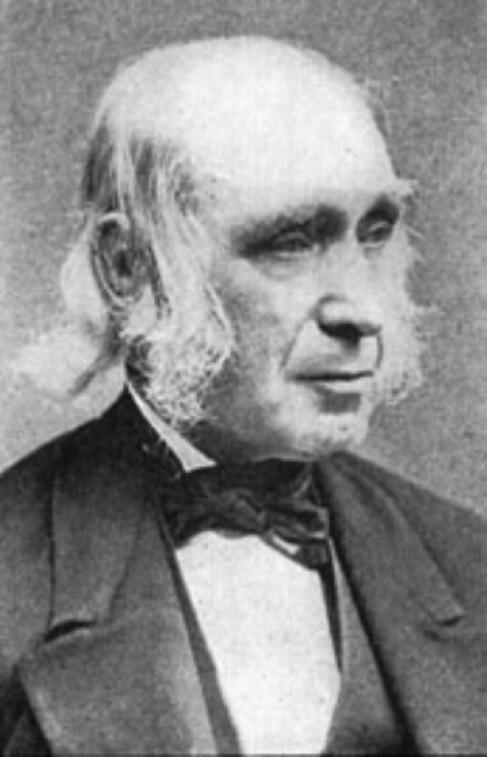Photo of Amos Bronson Alcott
Date Published 23 May, 1846:
The Farm Without Farmers
Robert Malachi here, reporting to you today from the Washington Post, today I will be discussing the Fruitlands, the fruitlands was a Utopia that did not last long, 1843-1844. So unlike the Brook Farm as you may have heard about in my previous report done in 1847, I didn’t have as much time to study the Fruitlands and the vibe around the Fruitlands of Harvard, Massachusetts.
The Fruitland Farm was founded by Amos Bronson Alcott, and only lasted about seven months being the shortest lasting Utopia of the 18th century. The Fruitland Farm, or better known as the Farm Without Farmers experienced a harsh winter that put the farmers indoors and it was suspected that almost all of the winters had the same effect.After Alcott had the idea to conduct the experiment influenced by others around him that had success he decided it would be in his interest to acquire a partner, someone to help him start the farm. In years to come he met Charles Lane, a philosopher, Charles bought 90 acres plus an abandoned farm and house. Alcott had background with Transcendentalism and Philosophy so he was ready to dive into the Fruitlands head first. He had taught at a experimental school where he asked students questions rather than teaching them, thinking that the students would become knowledgeable when they grow older.
Life on the Farm was almost the opposite of the Brook farm, in my previous article I described that the Brook Farm made its profit from the school lead by Mrs. Ripley, tours, and farm work. The Fruitlands wasn’t able to farm as much, because they only had eleven acres to work with. Although the Fruitlands made their money through farming it proved to be not enough in December of 1843 and the farm was shut down, Alcott was disappointed with his failure in what he had hoped would be a great success. Alcotts main goal was to create a community that was cut off from trade and soloy lived off their own resources that they harvested. He also wanted to be able to have a community that reflected the religion of transcendentalism. that The highest amount of inhabitants only included thirteen people, including four of Alcotts kids and five other kids. So technically there were only four people living on the farm that had a choice to live there or not. Although eleven acres may seem viable to support only thirteen people, but that proved not to be the point when Alcott didn’t approve of using animals on the farm and even so if Alcott allowed animals on the farm it was very unlikely that they would make it through the harsh winters. I only got to spend a week at the farm and I didn’t get as much out of my experience as I hoped to. Alcott wasn’t as intrigued as I liked him to be and didn’t let me interview anyone on the farm, I think this is because he didn’t want them to be exposed to someone from as he put it “the outside world”.
So after my time spent at the farm I felt like I could make some interesting conclusions. I believe that the Brook Farm was more successful because they had a lot more sources from where their money was coming from, so if one of those sources didn’t provide then the others ones could make up for it. Also the Brook Farm had a lot more participation so therefore they got a lot more farming done and people were more likely to stay with the amount of different types of people they could talk to each day and get to know. Also Ripley had planned the Brook Farm for years and with the Fruitlands Lane took a late ride on the boat and learned about it a year in advance enough time for him to want to purchase the lane be invested in the farm. I believe after two long term studies of two very different types of Utopias I can now conclude that the more people the better and the more land the easier it is to receive better income. Also to create a successful Utopia you need people that are going to be dedicated in the long run, unlike Nathaniel Hawthorne was towards the last few years of the Brook Farm. In my next article I will be discussing the difference between the Fruitlands, Brook Farm, and the Utopia that I have spent the most time researching The New Harmony. Thanks for reading and stay tuned for more.
Works Consulted
http://en.wikipedia.org/wiki/Fruitlands_(transcendental_center) – For Dates about the Brook Farm and The Fruitlands.
http://www.history.com/news/history-lists/5-19th-century-utopian-communities-in-the-united-states – Overview of the Fruitlands and Brook Farm
http://www.alcott.net/alcott/home/fruitlands.html – Daily Lives at the Fruitlands and also life story of Alcott
Primary Source: Francis, Richard. Transcendental utopias: individual and community at Brook Farm, Fruitlands, and Walden. Ithaca: Cornell University Press, 1997. Print.

